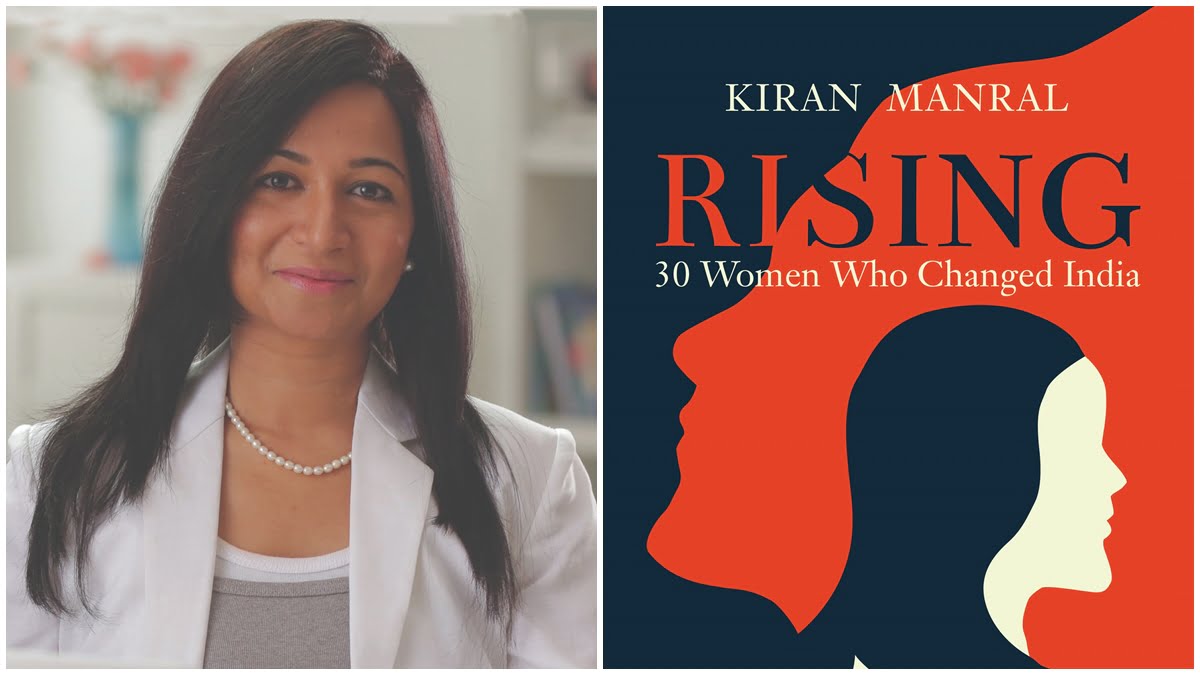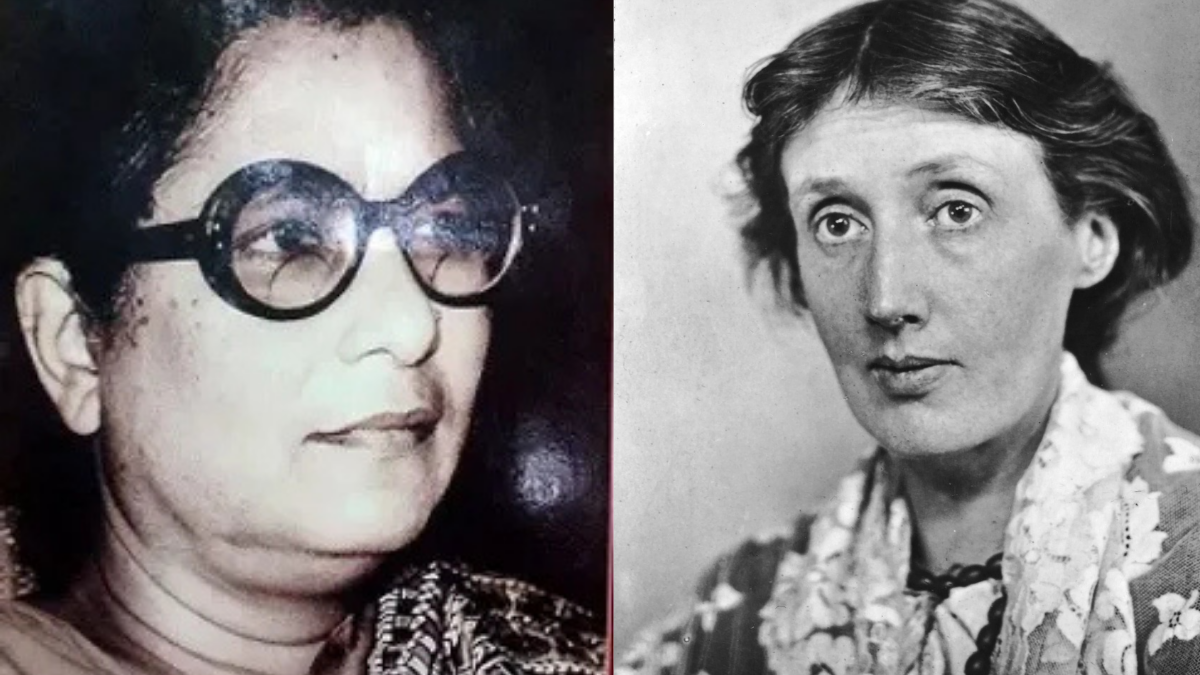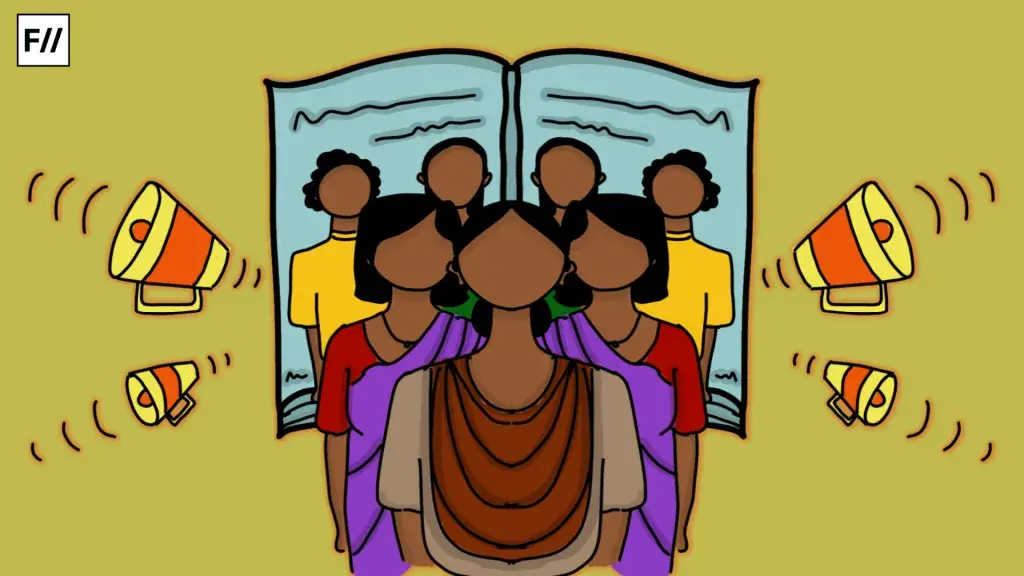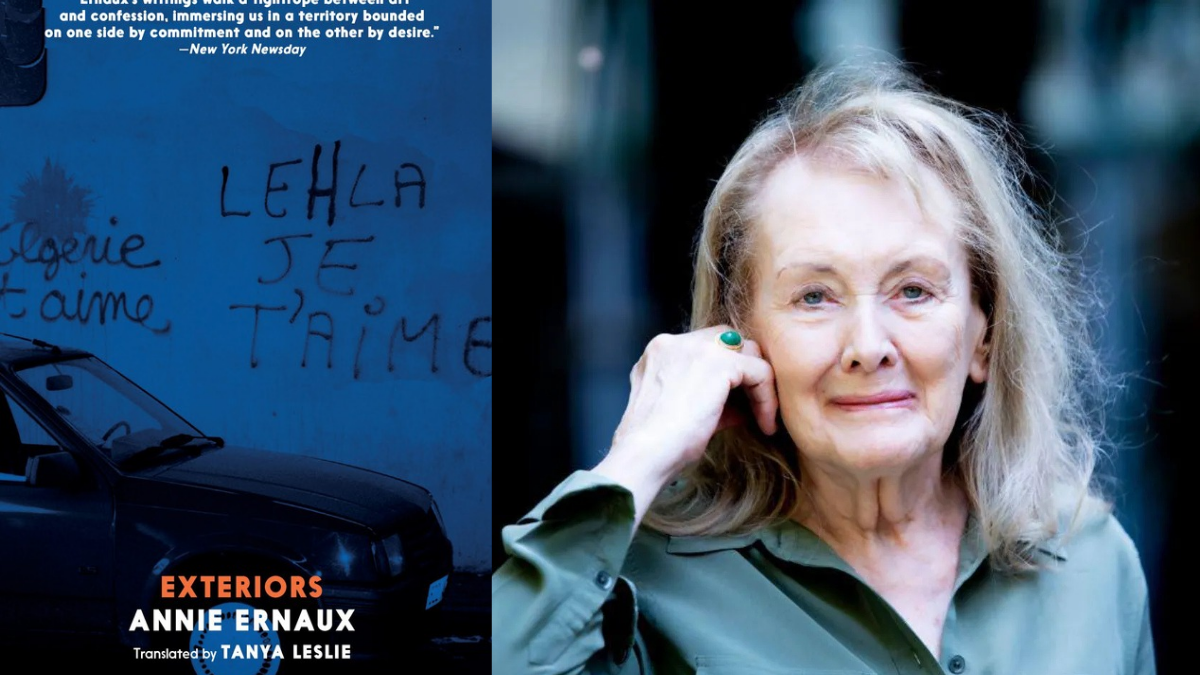Every woman has a story. Every woman has a voice. However, seldom is her story read or her voice heard. India’s present socio-political climate is testimony to a woman’s struggle for agency, subjectivity, and freedom. In such a scenario, Kiran Manral’s latest book, Rising: 30 Women Who Changed India (Rupa Publications, 2022) serves as a movement and a clarion call for humanity – irrespective of class, caste, colour, ethnicity – to rise, recognise, and realise the power of equality, equity, and empowerment to help create a future premised on the principles of egalitarianism and sustainability.
A proud recipient of the prestigious Women Achievers Award by Young Environmentalists Association in 2013 and the International Women’s Day Award 2018 from the Indian Council of UN Relations, author Kiran Manral wears multiple hats – she has been a journalist, researcher, festival curator, and an entrepreneur. Some of her fictional works include The Reluctant Detective, Once Upon a Crush, All Aboard!, Saving Maya, Missing: Presumed Dead, The Face at the Window, The Kitty Party Murder and More Things in Heaven and Earth.
A proud recipient of the prestigious Women Achievers Award by Young Environmentalists Association in 2013 and the International Women’s Day Award 2018 from the Indian Council of UN Relations, author Kiran Manral wears multiple hats – she has been a journalist, researcher, festival curator, and an entrepreneur. Some of her fictional works include The Reluctant Detective, Once Upon a Crush, All Aboard!, Saving Maya, Missing: Presumed Dead, The Face at the Window, The Kitty Party Murder and More Things in Heaven and Earth.
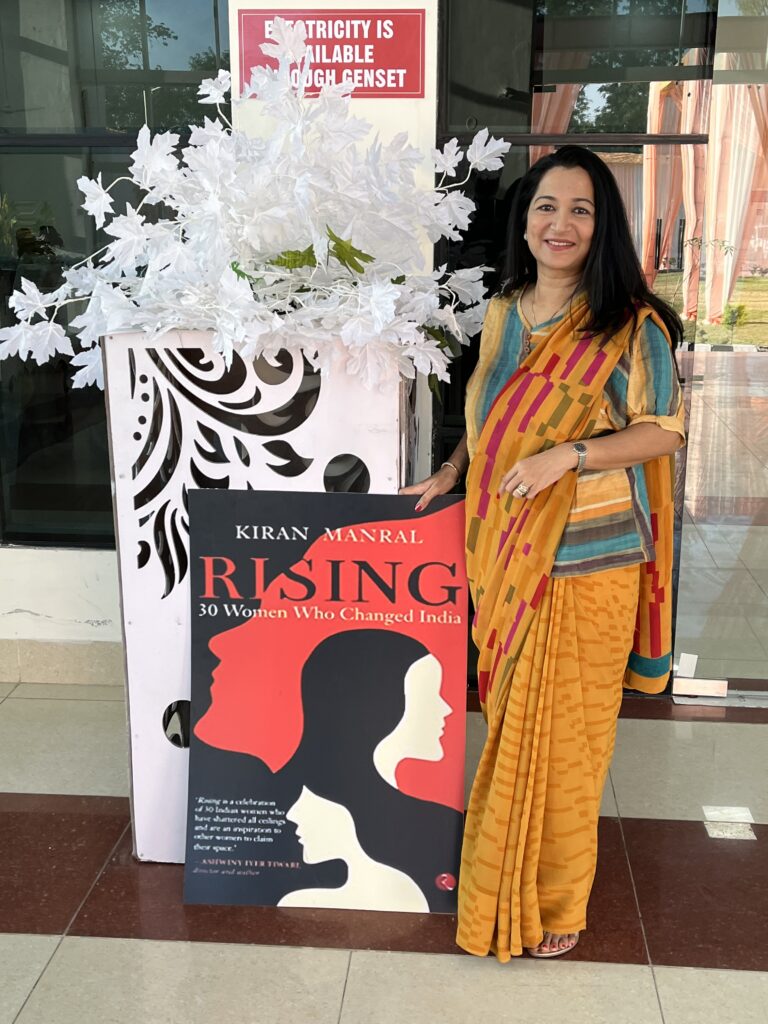
Also read: FII Interviews: Naheed Phiroze Patel, Author Of A Mirror Made of Rain
In an exclusive conversation with FII, Kiran Manral shares with us her incredible journey that eventually led to the birth of Rising.
Before we get into the journey behind the making of Rising, I would want to ask you: what does it mean to be a woman in India today?
Kiran Manral: By the Constitution of the country, men and women are equal. But are they? Our experience of what it means to be a woman in India today is limited to our personal experience and that of the women around us, in our immediate circles – our families, our friends, and acquaintances. But there is an India that is so vast and so diverse, that the stories of the women who live in it trickle down to us as snippets in news items, in stories that shock and horrify us, stories that also give us hope and joy. To be a woman in India today is to be in a constant battle against the policing that still exists, the boundaries that are still drawn around women and the barriers that continue to be erected. It means walking down a street with the awareness that you could be sexually harassed at any point, it means knowing that there is a pay gap between you and your male colleagues in the workplace, it means struggling with patriarchy every single day, it means living in a country where we still are fighting for better representation in Parliament. Women in India still continue to be in battle every day, a battle that women before us have fought, a battle that we continue to fight.
Tell us about the genesis of Rising. How did it all start and what made you choose the 30 iconic women that you did?
Kiran Manral: Rising began as a call I received one day, few years ago, from Saswati Bora at Rupa Publications. She said, Kiran, would you be interested in chronicling the lives of 30 inspiring women from India. And that was it. I took it on. The names we chose ultimately came through a process of considerable back and forth, the editorial team had their inputs, I suggested some names. We opted for a mix of known and relatively unknown names, and of course this is not, and can never be a definitive list. There are many, many more women out there who definitely (are) qualified to be in this book, and I hope I will have the opportunity someday of telling their stories as well.
The subtitle reads: “30 Women Who Changed India”. How do you read this “change” – is it a change in terms of people’s mindset about women; is it about revolutionising the ways of perceiving the world which is dominated by patriarchal dogmas; or, is it about something greater than or beyond all this?
Kiran Manral: I think ‘change’ means different things to different people. To one, change could mean something tangible and visible, to another change would mean something internal, a visceral shift within themselves or another, or perhaps a change in the very lens through which they perceive the world they inhabit, as well as the people around them. Perhaps, I would like to interpret this change as one that empowers women to aspire to change themselves and confront the circumstances that limit, enclose, box them into what is defined as acceptable and agreeable. It is only when the change is internal and that women truly believe that they will not be limited that this will truly reflect across all sections of society. It is a series of incremental changes, that when they come together, shake the patriarchy.
About M. Fathima Beevi, the first female judge in the Supreme Court, you use a very interesting phrase while describing her struggle in her early days in law. You write, “She was an outlier in the courts of the time…being the only woman and that too one wearing a headscarf…” This reminds us of the ongoing ‘hijab controversy’ in Karnataka and elsewhere in India. Do you think “outliers” like Fathima Beevi would have been at the receiving end of more censure, condemnation, and discrimination today than during her time?
Kiran Manral: Women have fought immense battles to claim their space in the sun, we are still fighting those battles. Every generation has their outliers, and these outliers build the foundations of the platforms that generations of young girls who come after them will build their destinies upon. That M. Fathima Beevi fought the battles she did, reached the eminence she did all those years ago, and that these are battles young girls today are being compelled to fight all over again makes me wonder how much ground have we ceded over the past few years and what are all the battles that women will have to fight over and over again.
Which of these 30 women’s stories inspired you the most and why? Any particular memory or moment that you would like to share with our readers that defined this one-of-a-kind ethnographic research undertaken by you?
Kiran Manral: Anita Desai was the one life that I felt came closest to mine, I too write in the intervals between being a mother and wife and running my home, although I did for the longest time continue to work freelance as a journalist, a content creator, a researcher. I recognised, in her struggle to carve time out for herself and her writing, my own struggle to have my work taken seriously by those in my immediate circumstances, that I must continue writing regardless of whether I get the space and the emptiness so essential for creativity. To get the void you require to create is a luxury. In the course of my research, when I read that she wrote in the hours her children went to school, there was a sense of acute déjà vu. This could be me, I thought to myself. That for me was a very poignant moment, the fact that all those centuries ago, Virginia Woolf wrote that a woman needs a room of her own and money if she must write fiction, and that all these years later, nothing much seems to have changed. We still write in the intervals that the managing of the quotidian allots us.
Is there any woman whose story you wanted to include but for some reason could not and had to drop? Is another volume in the making, perhaps?
Kiran Manral: Oh, there were many, many names that went on the list, and it would have been impossible to include them all. This is by no means a definitive list. And I do hope we will have more volumes.
“Mahasweta…what could she be possibly writing?” This statement in the biographical sketch of one of India’s literary giants, perhaps, could be a universal patriarchal sentiment that dismisses a woman’s agency, subjectivity, and subjecthood. Is your book Rising a fierce attempt to (re)claim the ‘herstory’ from a (his)tory of heroes and heroic deeds? Can we read your book as a strong feminist appeal to envision a gender sustainable world?
Kiran Manral: Absolutely. The idea of a woman writing for a living was by itself subversive back in the times Mahasweta Devi decided to make her living through writing. What stories could she tell, wouldn’t her stories be narrow and domestic, overtly sentimental, romantic? Perhaps this perception still exists about women telling stories, whether their own or that of stories they create. This is why I feel it is essential and important to tell and retell women’s stories, to reclaim the socio-cultural space that dismisses their achievements, that encourages women to shrink rather than to shine, that is why it is necessary to talk about who these magnificent women were and are, and why we need to know about them and celebrate them. We need to have heroes and we need to have our icons, and these need to be across history and herstory.
Also read: FII Interviews: Prof. Vibhuti Patel On Her Role In The Women’s Movement In India
Any final thoughts on why Rising should be part of every reader’s essential reading list, and do give us a sneak peek into your upcoming literary ventures.
Kiran Manral: I believe Rising is a humble attempt to reclaim space that has been constantly denied to women over the centuries. I would urge young readers and women to read these stories to get an insight into the diverse struggles and challenges each of these women have faced and how they surmounted these, with no excuse or apologies but just by insisting that they would do what they had to. And if even one young girl reading this book is inspired by any of the stories within, to reach out and grab life by the lapels, I would consider my task with this book done.
As to what is coming up, I’ve been writing some dark, surreal fiction, and I do hope they see the light of print and paper, or Kindle, soon.
FII thanks Kiran Manral for her time. You can follow her on Twitter.
Rising is available on Amazon.
About the author(s)
With over 10 years’ experience in publishing and journalism, Ipshita Mitra has a Bachelor’s degree in English Literature from Miranda House, DU and holds a PG Diploma in English Journalism from IIMC. She did her MA in Gender and Development Studies and is currently pursuing her PhD in Gender Studies from IGNOU.
She has worked with The Times of India, The Asian Age, The Quint, Om Books International, World Monuments Fund India Association, and The Energy and Resources Institute (TERI). In 2016, her short story ‘Cacophony of Silence’ was published by Nikkei Voice, a Canadian-Japanese newspaper. In 2020, her short story ‘Bohemian Sailor of the Gulf’ was published by Sublunary Editions, a Seattle-based independent publisher. The Indian Quarterly (April–June 2021) published her short fiction, ‘Kabuliwala Returns’. She writes on books, culture, environment, and gender for TerraGreen, The Hindu, Scroll.in, The Wire, Wasafiri, Firstpost, Huffington Post, India Currents, and others. She tweets @ipshita77.
